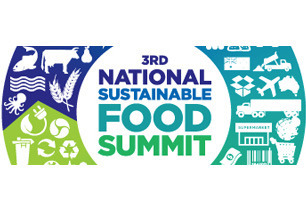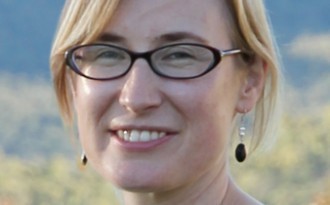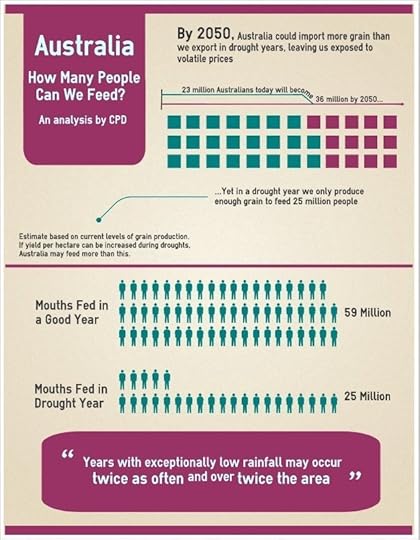Centre for Policy Development's Blog, page 76
February 4, 2013
Ian McAuley | Abbott’s figures don’t add up | New Matilda, 4 Feb 2013
Is it possible to cut company tax, cut the carbon tax, pay out for defence and ‘direct action’ on climate change—and still balance the budget?

CPD fellow Ian McAuley analyses the pitfalls of Abbott’s policy paper ‘Our Plan: Real Solutions for All Australians’ which, while promising to abolish the Mining and Carbon Tax, cut personal and company tax, spend heavily on road infrastructure and increase pensions, refuses to reveal any costings.
As Ian argues, the contradictions replete in the Coalition’s fiscal statements which no economic conditions or budgetary measures could possibly reconcile, have gone largely unnoticed by the media, leading to the public assumption that the ‘Coalition is better able to handle the economy than the current Labor Government.’
Read Ian McAuley’s New Matilda article – ‘Abbott’s figures don’t add up’ – in full
February 3, 2013
National Sustainable Food Summit webinar | Online
Replay Laura Eadie’s webinar here
Check out the 2013 National Sustainable Food Summit here
CPD Research Director Laura Eadie presented an online webinar to the 3 Pillars knowledge network for sustainability in Australia,attended by leading food industry executives with an interest in a more sustainable way forward for the sector.
3 Pillars runs a series of events on a range of sustainability topics, one of which is the National Sustainable Food Summit, now in its third year. The webinar will form part of a series of online events designed to stimulate discussion in the run up to the 2013 Summit.
Farming smarter—3 Pillars webinar presentation
Access the Farming Smarter, Not Harder report which inspired our thinking on sustainable agriculture
Please click here for info on previous years’ National Sustainable Food Summits
January 29, 2013
3rd National Sustainable Food Summit | Melbourne, 20–21 March 2013
‘how do we get to where we need to go?’
3 Pillars Network event enters its third year

This seminal event attracts delegates with interests across the food supply chain, including primary producers, manufacturers, retail brands, and members of the business, government, education, public health, community and not-for-profit sectors. It is the largest and most diverse gathering of practitioners interested in the sustainability of our food system.
Key themes:
what are current initiatives and how do we accelerate progress?
where the food system is heading and what is changing?
what roles and attributes does each stakeholder bring?
how do we collaborate?
Read more about the National sustainable food summit on the 3 Pillars Network website
January 15, 2013
Chris Bonnor | 774 ABC Radio Melbourne, 8 January
Education expert and CPD fellow Chris Bonnor explains to Leon Compton that when it comes to performance at University level a costly private school education wont necessarily beat out the public school alternative. Infact more private school students fail to complete their first year at university than students from government schools
Bonnor states that the increasing competition between schools over who boasts the best resources will have very little to do with fostering well rounded students and that parents should be wary of schools claiming to be able to outsource many of the experiences typically catered for by the family environment.
“My own kids went to the local public school and our role as parents was to give them the other enrichments of life,” he says. “It glued us together as a family.”
Listen to Chris Bonnor on ABC Radio Melbourne, 8 January 2013
December 19, 2012
Ian McAuley | New Matilda, 4 December 2012
CPD Fellow ponders what credible policies might look like for the Liberal Party
Eliminating the carbon tax, (Abbott) claims, will save the budget $4 billion and eliminating the mining tax will save another $6 billion… Can elimination of taxes really improve the budgetary position? To get an insight we need to go to the history of a discredited theory called “supply side economics”. Arthur Laffer, an adviser to Ronald Reagan, suggested that a tax cut would stimulate the economy to the extent that tax collection actually rises. Laffer was wrong. Tax revenue fell and America’s public debt trebled on Reagan’s watch.
December 11, 2012
International public sector convention 2013 | Brisbane, 20–22 February
20–22 February 2013 | Brisbane Convention and Exhibition Centre, Brisbane, Queensland
For more information visit www.cpaaustralia.com.au/ipsc
CPD Research Director Christopher Stone will address this international conference on the topic of efficiency and the public service – leveraging current research from the CPD public service research program team.
Chris’s team aims to develop a robust knowledge base about the state of the public service: its funding and capacity; performance in delivering community services; and public attitudes and expectations regarding public servants.
Chris will share the latest research conducted by the Centre for Policy Development, which is currently focusing on efficiency. He has worked with different levels of government and specialises in the use of social science methods and concepts to improve the effectiveness of regulations and governance.
Advance notice discount: Register for IPSC 2013 by 28 January and save up to $415
International public sector convention 2011 | Melbourne, 9 March 2011
9 – 11 March 2011 | Melbourne Cricket Ground, Melbourne, Australia
For more information visit www.cpaaustralia.com.au/ipsc
International public sector convention 2011
Research Director Christopher Stone will address this international conference on the topic of efficiency and the public service – leveraging current research from the CPD public service research program team.
Chris’s team aims to develop a robust knowledge base about the state of the public service: its funding and capacity; performance in delivering community services; and public attitudes and expectations regarding public servants.
Chris will share the latest research conducted by the Centre for Policy Development, which is currently focusing on efficiency. He has worked with different levels of government and specialises in the use of social science methods and concepts to improve the effectiveness of regulations and governance.
Advance notice discount: Register by 28 January and save up to $415
December 10, 2012
National Sustainable Food Summit webinar | Online, from 11 December

CPD Research Director Laura Eadie presented an online webinar to the 3 Pillars knowledge network for sustainability in Australia,attended by leading food industry executives with an interest in a more sustainable way forward for the sector.
3 Pillars runs a series of events on a range of sustainability topics, one of which is the National Sustainable Food Summit, now in its third year. The webinar will form part of a series of online events designed to stimulate discussion in the run up to the 2013 Summit.
Farming smarter – 3 Pillars webinar presentation
Access the Farming Smarter, Not Harder report which inspired our thinking on sustainable agriculture
Please click here for info on previous years’ National Sustainable Food Summits
Sustainable agriculture | CPD infographic
Infographic by Robin Burton for CPD, illustrates Farming Smarter, Not Harder report data.
More extreme weather will threaten Australia’s food security, if sustainable practices are not adopted.

Infographic by Robin Burton for CPD, illustrates Farming Smarter, Not Harder data
Access Farming Smarter, Not Harder report
December 9, 2012
Pavan Sukhdev | ABC Radio National, 5 December
Former international banker Pavan Sukhdev was featured on Radio National’s PM program. The interview focused on what Mr Sukhdev described as the deeply disapointing global action on green economic reform and what the Australian govenment and corporations need to do to “take ownership of climate change”.
Pavan reiterated his ideas on a revised mining tax, which places a levy on resources, rather than profits:
There’s a whole host of things. To look at resource taxation again, resource taxation is a means of reducing the impacts of resource inefficiency, and part of that is energy inefficiency and part of that, of course, is also looking at the kind of energy that is used. So we need to look at all of these things afresh with clean, clear minds and address issues which have been hanging in the air for far too long.
Centre for Policy Development's Blog
- Centre for Policy Development's profile
- 1 follower



